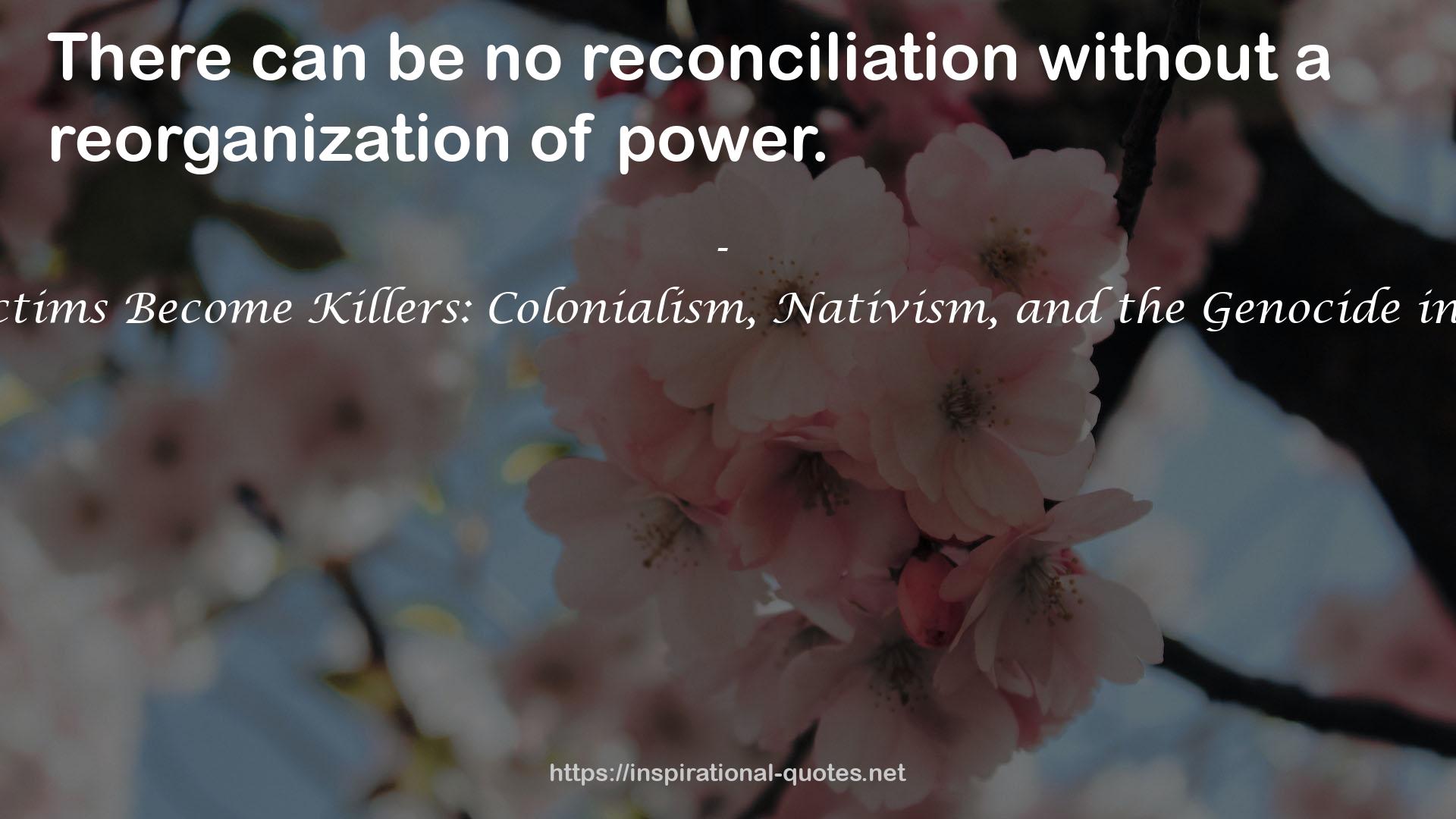6
" Hannah Arendt was right that genocide had to be linked to race ideology and bureaucratic efficiency if it was to be brought within the realm of comprehension. But she was mistaken in thinking that race was a singular South African, Boer, discovery. Had she added to the list of imperial horrors the genocide of the Amerindians and the centuries-long trans-Atlantic slave trade, she would have come to a different conclusion. For the nurturing ground of scientific racism was not as much the Boer experience in South Africa as the imperial encounter with continental Africa. The trans-Atlantic slave trade racialized notions of Africa. It fueled the conceptual tendency to divide Africa in two: that above the Sahara and that below it. From a bridge that had for centuries facilitated a regular flow of trading camel caravans between civilizations to its north and south, the Sahara was now seen as the opposite: a great civilizational barrier below which lay a land perpetually quarantined, “Negro Africa.” “True” Africa, “real” Africa, was now seen as identical with tropical (“sub-Saharan”) Africa geographically and Negro (“Bantu”) Africa socially. "
― , When Victims Become Killers: Colonialism, Nativism, and the Genocide in Rwanda
8
" The idea that the Tutsi were superior because they came from elsewhere, and that the difference between them and the local population was a racial difference, was an idea of colonial origin. It was an idea shared by rival colonists, Belgians, Germans, English, all of whom were convinced that wherever in Africa there was evidence of organized state life, there the ruling groups must have come from elsewhere. "
― , When Victims Become Killers: Colonialism, Nativism, and the Genocide in Rwanda
10
" Accounts of the genocide, whether academic or popular, suffer from three silences. The first concerns the history of genocide: many write as if genocide has no history and as if the Rwandan genocide had no precedent, even in this century replete with political violence. The Rwandan genocide thus appears as an anthropological oddity. For Africans, it turns into a Rwandan oddity; and for non-Africans, the aberration is Africa. For both, the temptation is to dismiss Rwanda as exceptional. The second silence concerns the agency of the genocide: academic writings, in particular, have highlighted the design from above in a one-sided manner. They hesitate to acknowledge, much less explain, the participation—even initiative—from below.5 When political analysis presents the genocide as exclusively a state project and ignores its subaltern and “popular” character, it tends to reduce the violence to a set of meaningless outbursts, ritualistic and bizarre, like some ancient primordial twitch come to life. The third silence concerns the geography of the genocide. Since the genocide happened within the boundaries of Rwanda, there is a widespread tendency to assume that it must also be an outcome of processes that unfolded within the same boundaries. A focus confined to Rwandan state boundaries inevitably translates into a silence about regional processes that fed the dynamic leading to the genocide. "
― , When Victims Become Killers: Colonialism, Nativism, and the Genocide in Rwanda

